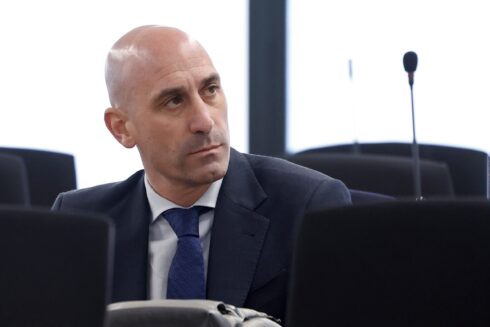ON the 50th anniversary of the Treaty of Rome, Argentine academic Fernando A Iglesias sends an open letter to the citizens of Europe, expressing his view of our continent from across the Atlantic Ocean.
Today, on reaching 50 years since the birth of the European Economic Community (EEC), the Eurosceptics celebrate its misfortune with an energy worthy of a better purpose. Those Polish plumbers, that Brussels bureaucracy, that uncontrolled immigration, that technological gap with the US, that boom in China, that Franco-Dutch rejection of the constitution… . Even the inhabitants of these depressed plains allow themselves to look on with a certain contempt, not without pity. Poor Europeans! How they suffer in the EU! In contrast, as the Pope has finally announced, Argentina is the country of the future (and, with things as they are, always will be).
After returning to our senses through the reading of statistics, we learn the six signatory states to the Treaty of Rome that established the EEC were then placed in the UN human development index between 10th position (Holland) and 21st (Germany) out of a total of 177 nations.
It is not due to simple sporting energy that, today in the six founding countries, the average life expectancy is close to 80 years; adult illiteracy is less than one per cent; their annual GDP per capita fluctuates between 21,000 and 52,000 euros.
What is more: Germany, France, Holland, Italy, Belgium and Luxembourg have extended the unitary process to the political field, creating the first supranational citizenship in history under the auspices of the European Court of Justice and the European Parliament.
In terms of geography, half a century after those modest beginnings, 27 countries make up the Union today, whose process of integration has favoured above all the poorest and newest members.
For those with doubts, between 1990 and 2004 France and Germany, its two major nations and principal contributors to the system of common funds, multiplied their economies by 1.6 and 1.7 respectively, Poland has quadrupled its GDP, Hungary and the Czech Republic have tripled theirs and Spain and Portugal have doubled theirs. Compare this with what Brazil and Argentina, Uruguay and Paraguay have done in MERCOSUR (a trade agreement between the countries). Or, think of Venezuela and remember that since the beginning a clause has existed impeding the accession to the EEC of countries that do not reach the democratic requirements.
Circumstances have finished with coups and threats of coups in Italy, Greece, Spain and Portugal – finished with by the knocking down a certain wall – and made Europe the continent with the highest levels of democracy and freedom.
Since the Europeans gave up insisting on nationalism and provincialism in a globalised world, Europe is also the most egalitarian continent on the planet and the one with the lowest indices of poverty and criminality. It is not a paradise, of course, neither is its future assured given that works of humanity lack the virtues of prophecy and perfection; but it is, without a doubt, the continent that offers the best living conditions for its inhabitants – despite the fact that in 1950, when the European Coal and Steel Community was created paving the way for the Economic Community, it was without a doubt the worst.
In effect, the progressive birth of political unity has divided the 20th century into two halves in Europe. During the first, national political apparatus and nationalist ideologies reigned and there was hunger and misery, two world wars, the worst genocide in history and millions of deaths; emigrants would escape to the third world in search of pan y paz – bread and peace.
In the second, its nation-states transferred a good part of their responsibilities to a progressively democratised continental structure and Europe became what it is: a laboratory of global democracy and the continent whose inhabitants enjoy the best conditions of existence on planet earth.
For this, the nationalists do not forgive it.
And also for this, I wish you a very happy birthday.
Fernando A. Iglesias
(translated by Lisa Tilley)





